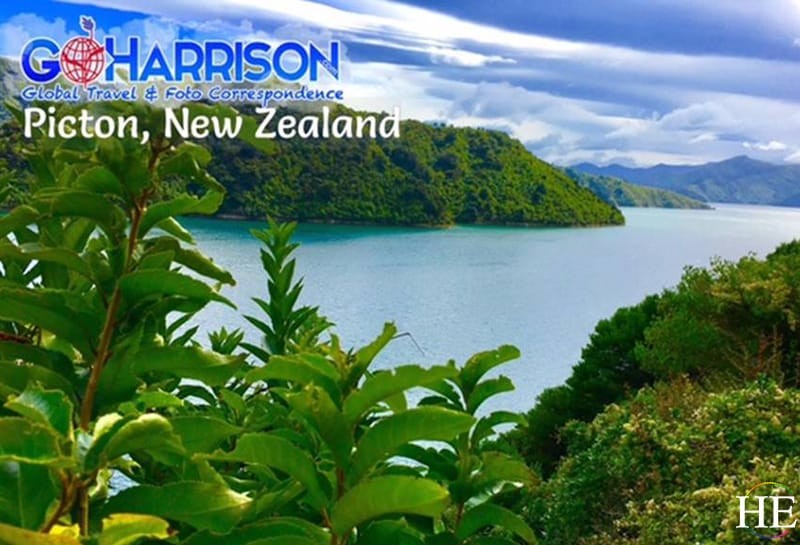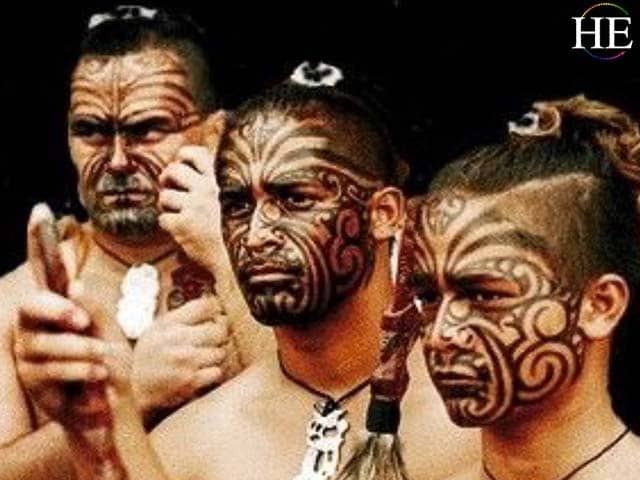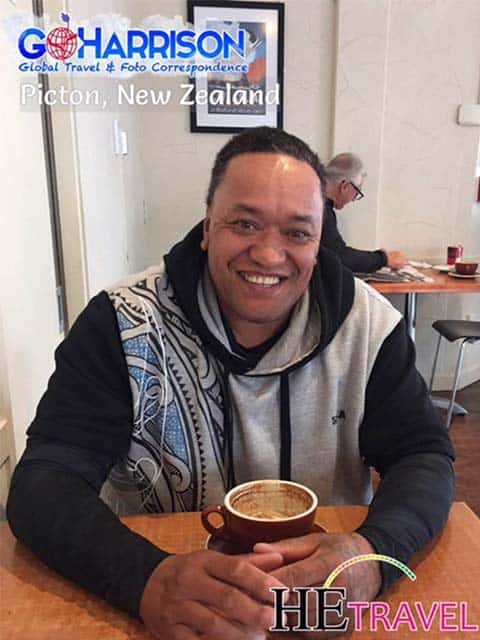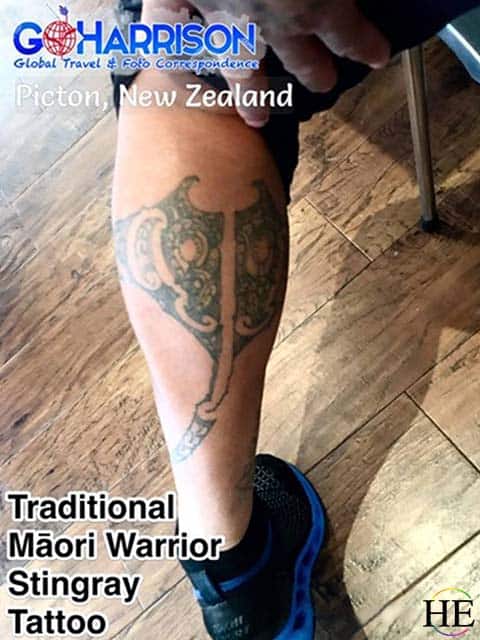
By Cary Harrison
On my recent trip to New Zealand I learned New Zealand has a different relationship with their indigenous people than Australia. Australian aboriginals are still largely personae non-grata despite technical cultural protections. As Australia became settled, vulnerable aboriginals had no defense against British firepower and thin “promises”.

However, neighboring New Zealand’s indigenous Māori tribes are considered to have some of the world’s fiercest warriors. Unlike the Australian aboriginals, the Māori were successfully able to outflank British guns using darts, spears, and clever foliage maneuvers, resulting in a long-standing treaty which still holds today.

Stuart, this straight Māori man, here in Picton, New Zealand, is one of the many in NZ’s indigenous multicultural population. He explains to me that the Māori make no distinction between straights and gays. Their word for “gay” is “Pupi” (pronounced Poo-wee), meaning “lovable child.” Think about the definition of their word for gay. It’s very definition is positive and embracing and is given legitimately when the gay child is revealing his or her truest self.
Māori children were traditionally selected for duties based on aptitude. The ones that fit the warrior model were selected out to travel with the adult men for hunting and defense/offense. Other males who demonstrated a keen ability for cooking and weaving remained with the mothers where it was understood that this was where they preferred to be. The warriors took off and the Pupi become responsible for the infrastructure and wellness of the culture. The gay Pupi remains completely accepted, not through legislation or forced political correctness, but through common sense and the notion that Nature always has the most sensible plan.
Stuart tells me he has two lesbian sisters and a gay cousin. He also fully understands the mechanics of all sexual attractions, despite his specific interest in women. He’s happy to have found a mate. He says there is no differentiation whatsoever when diverse families visit each other and all mates are treated equally and with no special scrutiny.

In this photo, he sports the Māori Warrior tattoo of the stingray. He hugs me goodbye and thanks me for asking questions that, he says, no other white man has asked. This is why I particularly love being a part of HE Travel as a public radio host because it encourages deeper exploration of cultures and the people of our world.
While you’re here, check out our Wild Kiwi New Zealand Adventure Tour!
